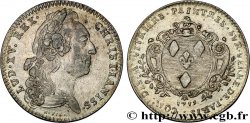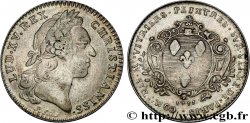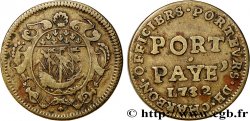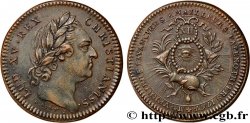fjt_755389 - CORPORATIONS Huissiers, Commissaires-Priseurs n.d.
25.00 €(Approx. 26.75$ | 21.50£)
Quantity
Add to your cart

Type : Huissiers, Commissaires-Priseurs
Date: n.d.
Mint name / Town : s.l.
Metal : red copper
Diameter : 30 mm
Orientation dies : 6 h.
Weight : 7,82 g.
Edge : lisse
Rarity : R2
Coments on the condition:
Patine un peu sombre. Présence de faiblesses de frappe et de petites rayures à l’avers et au revers
Catalogue references :
Predigree :
Exemplaire provenant de la Collection MARINECHE
Obverse
Obverse legend : LUD. XV. REX CHRISTIANISS.
Obverse description : Buste à droite de Louis XV signé fm [type n° 322].
Obverse translation : Louis XV, roi très chrétien.
Reverse
Reverse legend : ELECTIS FIDITE ; À L'EXERGUE : HUISSIERS COMMISS. PRISEURS.
Reverse description : La Justice assise à droite, tenant de la main gauche les balances, une épée dans la droite. A terre, des gerbes de blé.
Reverse translation : Ayez confiance en ceux que vous avez choisis.








 Report a mistake
Report a mistake Print the page
Print the page Share my selection
Share my selection Ask a question
Ask a question Consign / sell
Consign / sell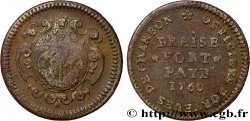
 Full data
Full data